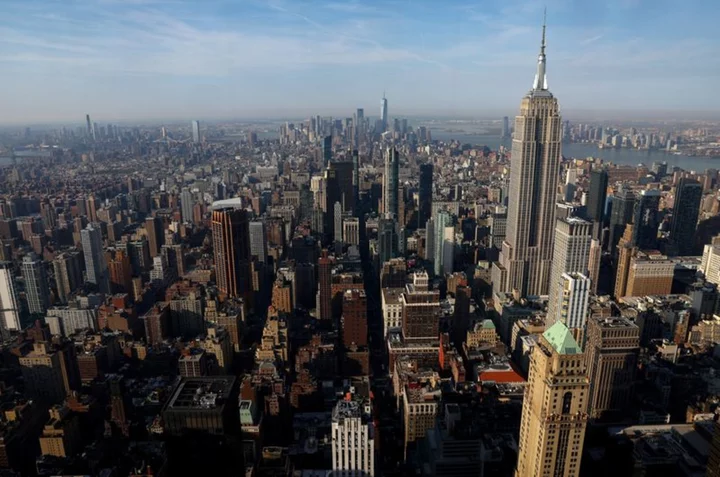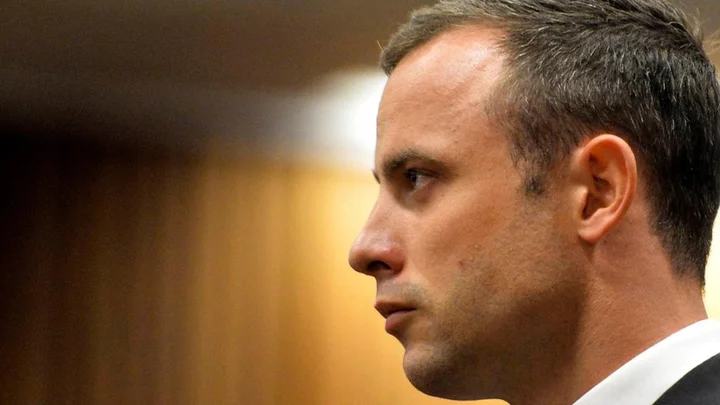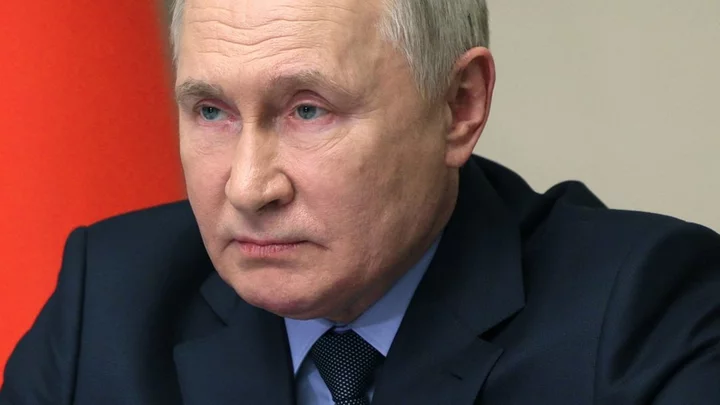US President Joe Biden scored key wins in a long-awaited summit with Chinese counterpart Xi Jinping but the stability could be short-lived with a potentially tumultuous year ahead that includes Taiwanese and US elections.
Xi, who has called for years for a more powerful China to challenge US primacy, visited the United States for the first time in more than six years as the Asian power's economy faces sharp headwinds.
Meeting Biden at a palatial estate outside San Francisco on the sidelines of a Pacific Rim summit, Xi agreed to restore military communications with the United States and to crack down on precursor chemicals to fentanyl, the painkiller behind an addiction epidemic in the United States.
"If you think about how long the US has been working on this, and how much the US has been emphasizing to the Chinese that these two issues are our priorities, this is pretty significant," said Yun Sun, a senior fellow at the Stimson Center in Washington.
For Xi, the deliverables are less tangible, with the Biden administration not backing down on sweeping sanctions on high-tech exports that have infuriated China.
The Commerce Department, however, said Thursday that in response to China's action on fentanyl it was lifting sanctions on the Ministry of Public Security's Institute of Forensic Science, blacklisted in 2020 over alleged mass surveillance of ethnic minorities.
"China wants to have the opportunity to focus on its domestic challenges, so having some stability with the United States is going to be useful," Sun said.
- 'Friendly face' for investors -
Xi's visit comes as China has been stunned by a downturn in foreign investor sentiment, with the economy held back by weak consumption and a property sector crisis, despite the end of pandemic restrictions.
In San Francisco, Xi hobnobbed at a gala reception and dinner with top US executives including Apple's Tim Cook.
Economic circumstances are forcing Xi to put on "a friendly face" in the United States, said Dexter Tiff Roberts of the Atlantic Council.
"The fact that Xi met at all with Biden, and the degree to which he has offered concessions," he said, "has everything to do with the protracted slump now ongoing in China's economy."
But the tone could quickly change. Xi and Biden also had a friendly meeting a year ago in Bali but within months tensions soared after the United States shot down what it said was a Chinese surveillance balloon.
And even though they promised to resume military communication, they have not yet done so, and China does not have a sitting defense minister.
"Oftentimes there's an agreement to talk in those channels, and then the meetings never happen," said Jacob Stokes, a senior fellow at the Center for a New American Security.
He also questioned whether dialogue would change the course of the People's Liberation Army, which has been accused of increasingly assertive actions toward China's neighbors, notably the Philippines.
"These channels provide the right forum to address miscalculations and inadvertent accidents. But the main problem is seemingly intentional PLA behavior that is dangerous and coercive," Stokes said.
- Last meeting before US vote? -
The California talks could be the last Xi-Biden meeting until the US election, with the next Group of 20 and APEC summits, in Brazil and Peru, expected shortly after the November 5 election.
Biden's predecessor -- and aspiring successor -- Donald Trump had welcomed Xi to his Mar-a-Lago resort in 2017 but later vowed no-holds barred confrontation with China. The Trump campaign accused Biden of a "sellout" at the summit.
If Xi had declined a summit, even after months of diplomacy by the Biden administration and with elections looming, he would have undermined support in the United States for engagement with China, Stokes said.
More immediate on the calendar -- Taiwan on January 13 holds elections.
China has repeatedly staged military exercises near the self-governing democracy, which Beijing claims as its territory.
Amid fears of a strong Chinese response, a US official said Biden asked Xi to "respect the electoral process in Taiwan," while Xi renewed opposition to US arms sales to Taipei and said "reunification" was "unstoppable."
In a new twist that coincided with the summit, Taiwan's two opposition parties said they would join forces, likely presenting a tougher challenge to candidate Lai Ching-te of the ruling Democratic People's Party, whose advocacy for Taiwan's separate identity is despised by Beijing.
A change in power in Taiwan would have "tremendous implications," said Sun of the Stimson Center.
While tensions with China would persist even with the more Beijing-friendly opposition Kuomintang, it would "remove some of the most contentious friction points," she said.
sct/hg/acb









